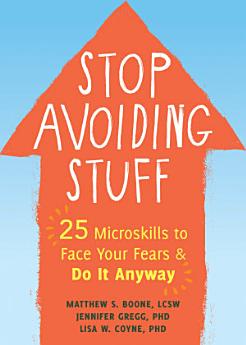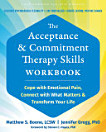Stop Avoiding Stuff: 25 Microskills to Face Your Fears and Do It Anyway
About this ebook
To fear is to be human. But fear can also keep us stuck living lives that are stale, stagnant, or downright miserable. Fear leads us down paths that feel more safe, but that deep down we know are wrong for us. The good news is that you can stand up to your fears and change your life for the better. If you’re ready to stop avoiding stuff and say yes to opportunity, the easy-to-implement strategies in this book will help you break the avoidance habits that have been keeping you in a rut.
Drawing on evidence-based acceptance and commitment therapy (ACT), this accessible guide offers 25 microskills to help you face your fears so you can live a truly courageous and meaningful life. With this book, you’ll learn:
- Why you avoid stuff
- Tips to increase self-awareness in moments of fear
- Strategies for untangling from distressing thoughts
- How to hold the inevitable pain and discomfort of life lightly
- Ways to connect with your values and take action
We are hardwired to avoid, control, and escape the stuff that makes us uncomfortable. But if you’re ready to stop living scared, the tips and tools in this little book will help you pivot back to what really matters to you.
Ratings and reviews
- Flag inappropriate
About the author
Jennifer Gregg, PhD, is a full professor in the department of psychology at San Jose State University; and a clinical psychologist at the University of California, San Francisco, where she works with cancer patients and their families. She is an ACBS peer-reviewed ACT trainer, and has been delivering, conducting research studies, and training clinicians in ACT and other mindfulness-based approaches since 1997.
Lisa W. Coyne, PhD, is a practicing clinical psychologist, author, and researcher who has worked with young people, their parents, and adults with anxiety for over twenty years. In 2014, she founded the OCD Institute for Children and Adolescents at McLean Hospital. She is an assistant professor at Harvard Medical School, and directs the New England Center for OCD and Anxiety in Cambridge, MA.





